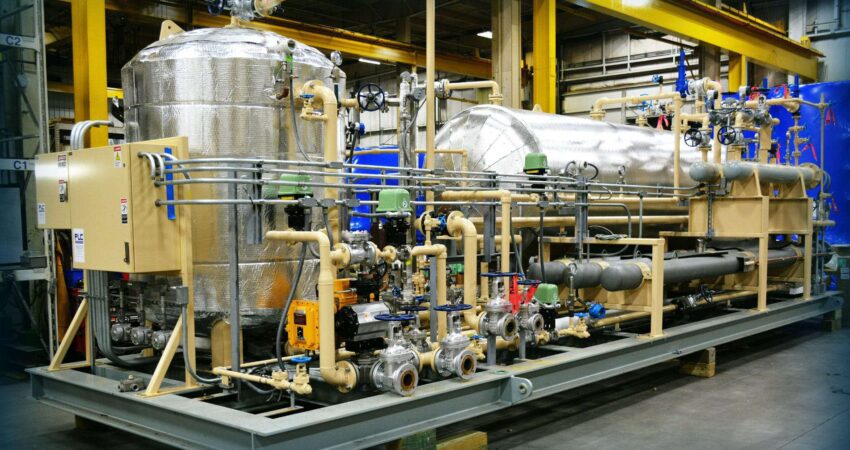In the process industry, accurate temperature measurements are of paramount importance for several critical reasons. Temperature is a fundamental parameter that directly impacts product quality, safety, energy efficiency, and overall process optimization. The utilization of thermocouples as temperature sensors plays a vital role in ensuring precise and reliable temperature data, which is crucial for successful industrial operations.
1. Process Efficiency and Product Quality: Temperature profoundly influences various industrial processes, including chemical reactions, fermentation, distillation, and material transformation. Accurate temperature monitoring enables operators to maintain optimal conditions and avoid deviations that could negatively affect product quality. Whether it’s controlling the temperature in a reactor or ensuring the correct annealing temperature in metalworking, precise measurements are essential to achieving consistent, high-quality products.
2. Safety and Environmental Concerns: Many industrial processes involve hazardous materials and extreme conditions. Accurate temperature measurements are essential for ensuring worker safety and environmental protection. In scenarios where temperature spikes or drops could lead to equipment failure or hazardous reactions, real-time monitoring becomes critical. Thermocouples provide swift feedback, allowing operators to take prompt corrective actions, prevent accidents, and minimize the potential impact on the environment.
3. Energy Efficiency and Cost Savings: Temperature control is closely linked to energy consumption in industrial settings. Optimal temperature management can lead to significant energy savings, reducing operational costs and enhancing overall process efficiency. By closely monitoring temperatures at various points in the process, operators can identify areas of energy waste and implement targeted improvements to streamline operations.
4. Process Optimization and Yield Enhancement: Accurate temperature measurements are a prerequisite for process optimization. By understanding how temperature variations affect the outcome, operators can fine-tune processes to maximize yield and minimize waste. Consistent temperature monitoring also facilitates the identification of inefficiencies or deviations, allowing for continuous improvement initiatives.
5. Compliance and Regulatory Requirements: Industries operating in highly regulated sectors, such as pharmaceuticals and food processing, must adhere to strict quality standards and comply with safety regulations. Temperature monitoring is often a critical parameter to demonstrate compliance. Thermocouples provide the necessary data to meet these requirements and assure stakeholders that processes are in control and meeting industry standards.
6. Troubleshooting and Preventive Maintenance: In the event of process anomalies or unexpected outcomes, temperature data serves as a valuable diagnostic tool. When operators have accurate temperature measurements from thermocouples, they can pinpoint the source of issues more efficiently, leading to faster troubleshooting and reduced downtime. Additionally, continuous temperature monitoring aids in implementing preventive maintenance strategies to identify and address potential equipment failures before they escalate.
Conclusion: Accurate temperature measurements with thermocouples are indispensable in the process industry. From ensuring product quality and safety to optimizing energy usage and complying with regulations, precise temperature data serves as the foundation for effective decision-making and process improvement. Investing in high-quality thermocouples and temperature monitoring systems is an essential step toward optimizing industrial processes and maximizing overall operational performance.
